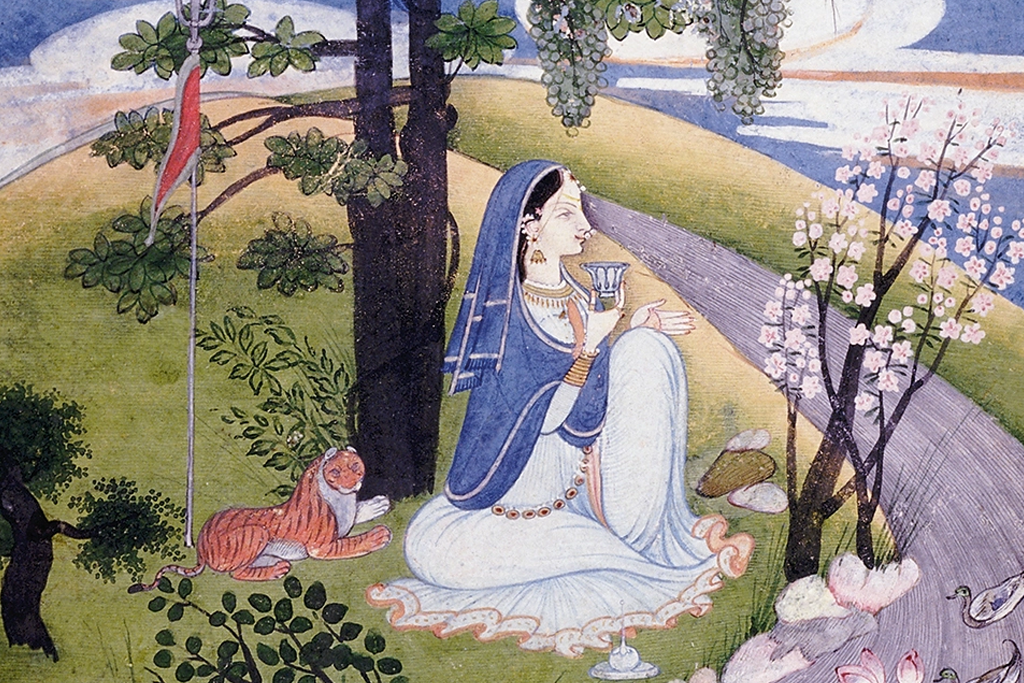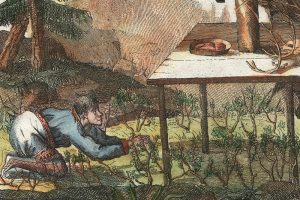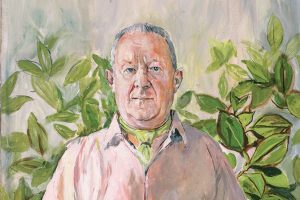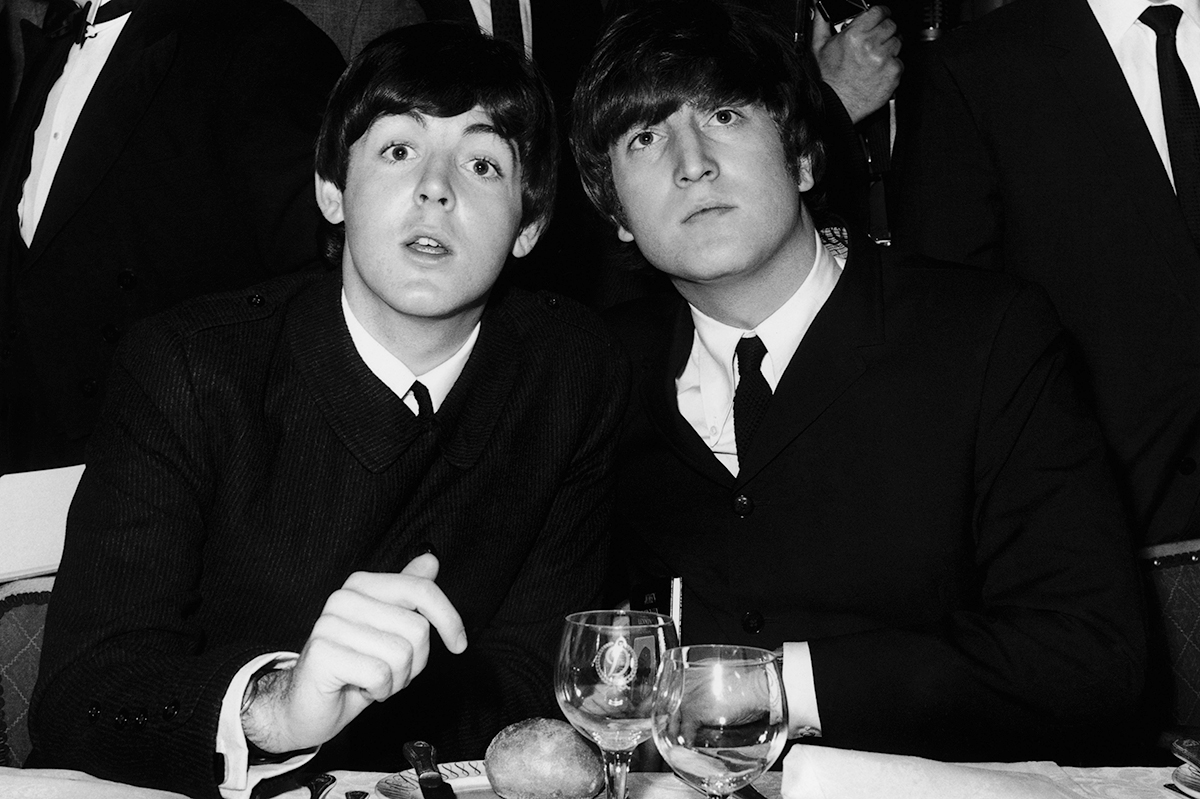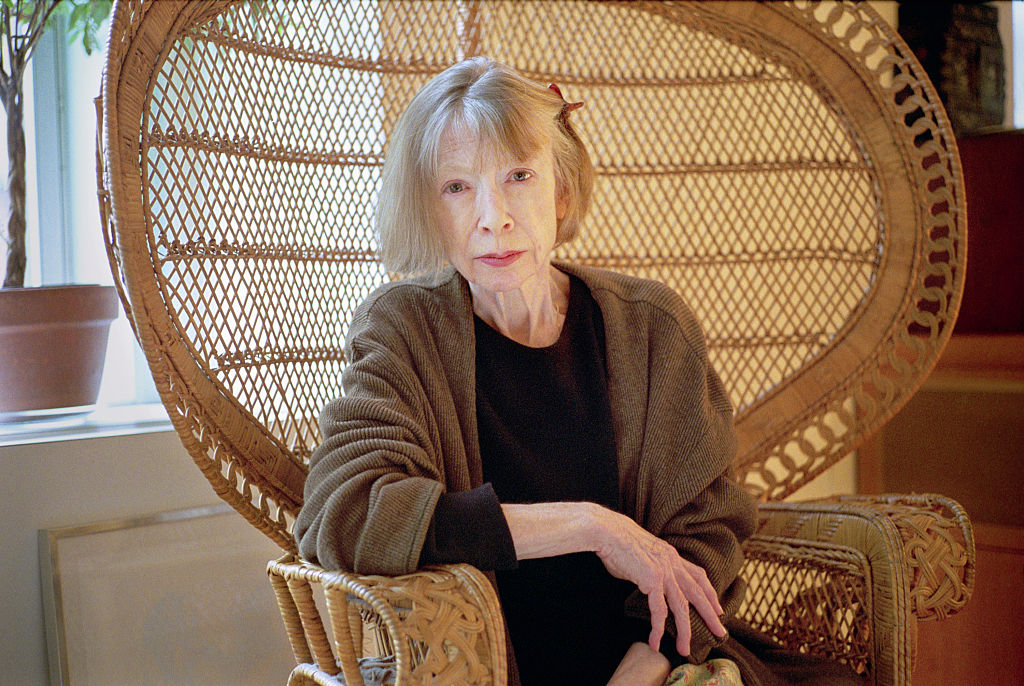If there were ever a Spectator competition for the best pastiche of the opening words of a Salman Rushdie novel, a pretty good entry might be: “On the last day of her life, when she was two hundred and forty-seven years old, the blind poet, miracle worker and prophetess Pampa Kampana completed her immense narrative poem about Bisnaga.” By coincidence, these are also the opening words of Victory City, a book Rushdie finished not long before last summer’s stabbing.
And, as it turns out, that first sentence sets the scene for much of what follows — because the novel takes its place alongside the likes of John Updike’s Villages (about adultery in the suburbs), Saul Bellow’s Ravelstein (a Jewish intellectual negotiates the modern world) and Martin Amis’s The Inside Story (Philip Larkin, his dad, foxy 1970s ball-breakers, etc) as one of those late works whose appeal is tinged with a kind of nostalgia. Objectively viewed, they may not add much that’s new to their author’s oeuvre. On the other hand, there’s something undeniably stirring about seeing these writers perform a selection of their greatest hits with such undiminished commitment.
In Rushdie’s case, this means that after a few novels based mainly in contemporary America, the old boy returns to India for a full-throated mix of history and magic realism, served with lashings of wildly imaginative, slightly bonkers storytelling.
For those a little rusty on their fourteenth-century Indian history, Bisnaga, where the book is set, was once one of the world’s grandest cities, with an empire to match. Yet, while Rushdie has clearly studied up on this, it seems a safe bet that the place didn’t suddenly spring into existence, as it does here, when a goddess-possessed eighteen-year-old girl told two cowherds to scatter seeds on the ground.
The girl in question is Pampa Kampana who, with 229 years still to go, has already had an eventful life. Following the destruction of her home kingdom of Kampili (another real place) when she was nine, she watched her mother join the other local widows in walking into a bonfire. And with that, the spirit of the goddess Parvati entered her, giving her the magical gifts that will come in handy for the rest of the novel. She then spent nine years in the cave of Vidyasagar the priest, whose vow of celibacy didn’t survive her blossoming into a beautiful teenager.
Until then, Pampa had been mute (the blindness comes much later), but she leaps into verbal action when the two cowherds, the brothers Hukka and Bukka, show up with the seeds that she grows into an instant city. Nor does her creation of Bisnaga end there. For the next nine days she secretly whispers to its newly fledged inhabitants the stories of their lives.
Before long, both Hukka and Bukka are understandably in love with Pampa, but her choice falls on Hukka, who also becomes king, with Bukka as his heir. Not that she proves a biddable wife and queen, openly continuing her pre-marriage relationship with a Portuguese traveler “as handsome as the daylight.” Even so, King Hukka follows her advice on practicing religious tolerance and recognizing female equality (or possibly superiority) in all areas of life and work, including soldiering.
As a result, Bisnaga is soon flourishing. Unfortunately, as the novel tells and shows us more than once, “golden ages never last.” Hukka gradually falls under the malign influence of Pampa’s old teacher and abuser Vidyasagar, who persuades him to reverse his former willingness to “embrace persons of all faiths as equal citizens.”
In the circumstances, Hukka’s death is well timed. Before ascending the throne — and taking his place as Pampa’s next husband — Bukka had been a cheerful drunk. Now he undergoes a Hal-like transformation into a wise and kindly ruler, with the happy consequence that “Hukka’s puritanical religious sensibilities were replaced by Bukka’s happy-go-lucky lack of religious rigor.”
Again, though, only for a while. When Bukka dies, Pampa’s feminism, belief in free love and embrace of diversity fall so out of fashion that she’s forced into exile with her three daughters, and they go off to live in an enchanted forest. Sure enough, once there, the novel moves into magic-realism overdrive. Pampa keeps in touch with events in Bisnaga by means of talking owls and parrots that she sends to the city to find out what’s going on. They duly report the melancholy news that the new fundamentalist Hindu king has decreed that “henceforth our narrative, and our narrative only, will prevail.”
Whether or not this is an allegory for Modi’s India, there’s not much doubt about what’s signified by the equally vocal pink monkeys causing trouble back in the forest. “They said they were, in essence, simple traders, employees of a trading company from far away,” we’re told. The forest spirits, however, are not fooled. “The monkeys mean to harm us,” they sing, “and to rule us if they can.”
Many incident-packed years later (summarizing Rushdie plots is never an easy business), Pampa turns herself into a bird and flies back to Bisnaga. Once there, she resumes her human appearance, aged 191 but still looking as young and gorgeous as ever.
Luckily, this is another well-timed event, because “the greatest king in the history of the empire was about to take the throne.” Not only does Krishnadevaraya appreciate Pampa’s worth (and gorgeousness) but he also sets about making a Bisnaga “in which all divisions — of caste, of skin color, of religion — would be set aside and the kingdom of love would be born.” And so another golden age begins.
Until, that is… Well, by now you probably get the idea — which is the main problem with Victory City. Again, this is not unknown in Rushdie’s work, but the sense increases that, if he were less distinguished, an editor might have risked the words “You need to lose around eighty pages, Salman.” Admittedly one of the book’s themes is that history moves in repetitive cycles. The trouble is that fiction which does the same thing inevitably suffers from the law of diminishing returns, especially as the eras of bigotry and those of tolerance each tend to be described in much the same way. At one stage, reflecting on the downsides of living for centuries, Pampa tells herself: “The story of a life has a beginning, a middle and an end. But if the middle is unnaturally prolonged then the story is no longer a pleasure.” Oddly, this is not a lesson she passes on to her creator.
Another familiar flaw comes with the limits of Rushdie’s feminism. Although he does his plucky liberal best to champion female equality (or superiority), you can’t help noticing that the ladies he particularly prizes are all stunners: not just Pampa (“the promiscuous beauty whom neither time nor motherhood could age or tame”) but also her daughters, who go from being “beautiful teenage girls” to “a trio of mature beauties.”
All in all, then, like those books I mentioned at the start, Victory City perhaps backs up the theory that most great writers eventually become their own pasticheurs. Yet in the end, I’d suggest, the sight of their traditional — and perhaps by now even endearing — foibles adds to the nostalgic fun.
It helps, mind you, that Rushdie’s characteristic strengths are still there too. The book has a present-day narrator who’s come across Pampa’s narrative poem and who retells it with only the occasional intervention or comment. He is, he informs us, “neither a scholar nor a poet but merely a spinner of yarns… who offers this version for the simple entertainment and possible edification of today’s readers.” And in all this his mission is definitely accomplished. More than forty years after Midnight’s Children, there’s still nobody who spins a yarn quite like Salman Rushdie.
In fact, as one faintly unhinged but dazzling set-piece gives way to another here, you begin to feel that to complain (as I just have) about over-abundance or recurrent obsessions in his work is both slightly ungrateful and as wholly pointless as wishing a hurricane would tone it down a bit.
This article was originally published in The Spectator’s UK magazine. Subscribe to the World edition here.



